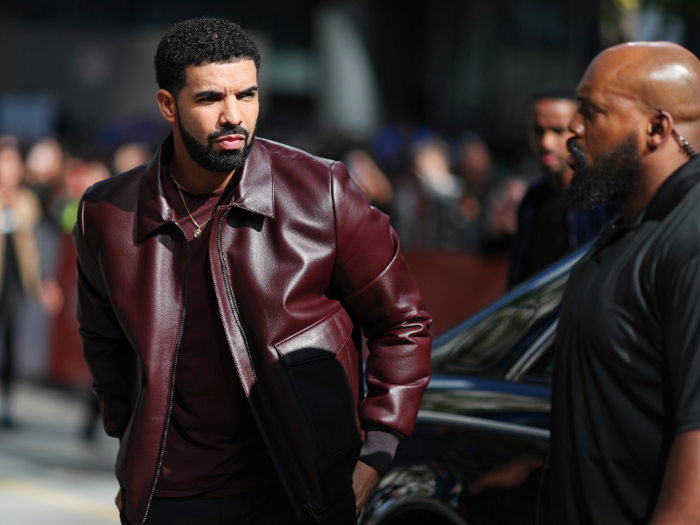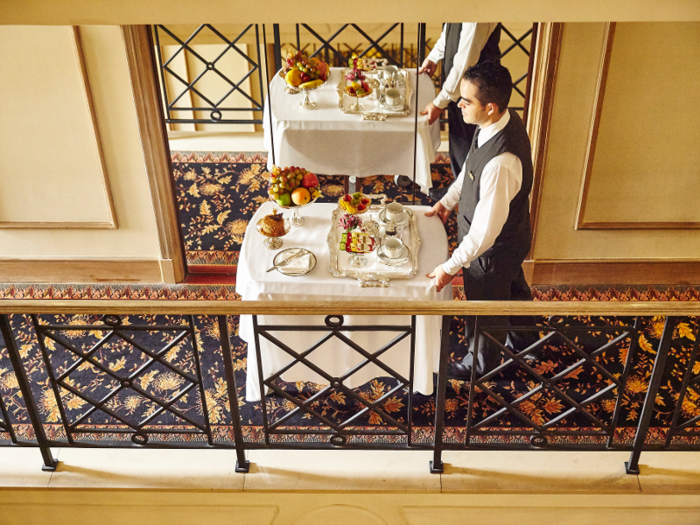- Home
- slideshows
- miscellaneous
- A rise in discreet wealth is creating a new type of status symbol, and the elite are spending their money on 5 key lifestyle choices to keep up with it
A rise in discreet wealth is creating a new type of status symbol, and the elite are spending their money on 5 key lifestyle choices to keep up with it
Education

Health and wellness

Vogue reported in 2015 that health and wellness had become a luxury status symbol.
The elite are investing in their well-being in a variety of ways: committing to pricey gym memberships like Manhattan's $900-a-month Performix House and the $200-plus membership gym chain, Equinox; eating healthy, shopping for organic foods in pricey stores like Whole Foods, and drinking $10 green juices; opting for apartments with wellness amenities; and taking wellness inspired escapes, like the $10,000-per-week Golden Door spa retreat.
"Wellness is increasingly regarded as a modern embodiment of luxury, and accordingly, an array of spas and studios offering treatments like cryofacials, weeklong retreats, and vitamin IV drips are delivering those experiences," Business Insider's Lina Batarags wrote.
Parents are even buying boutique healthcare for their kids, Pan reported.
In an analysis last year, the Financial Times columnist Simon Kuper wrote that "the cultural elite splurges on exercise, because it thinks that bodies (like food) should look natural."
"The thin, toned body expresses this class's worldview: Even leisure must be productive," Kuper continued. "Instead of trawling shopping malls, class members narrate their family hikes on Facebook."
Travel

The ability to invest in travel is an overarching status signifier — and it's a multi-layered expression that extends far beyond the classic idea of a vacation.
Nowadays, the super-rich are taking months-long, multimillion-dollar trips to recharge or reconnect with family, Business Insider's Katie Warren previously reported. Often, it's because they're burnt out from overworking. Luxury travel agency Original Travel saw these sabbatical trips spike in 2018. Many clients are "looking for an escape," co-founder Tom Barber told the Guardian.
"For others, it's 'braggability,'" Barber said. "They want to use their money to open doors that normal people can't and to tell their friends all about it."
These trips range from extreme adventures to luxurious getaways, Warren reported. They can also take shape in wellness escapes and educational excursions. Rich parents take their kids on enriching trips to the Galápagos, according to Pan, thereby imbuing their travel with a subtly educational note.
And, on a not-so-discreet note, plenty of top-dollar, high-end boutique hotels are designed, as Business Insider previously reported, specifically to be photogenic — because taking to Instagram is the perfect way to display the access that wealth can buy.
Security and privacy

The rich are cutting back on flashy displays in the name of safety and privacy.
Instead of investing in open displays of wealth, they're increasingly opting for "under the radar" living, reported Kate Allen of the Financial Times.
This involves blocking GPS from locating property with a jamming signal, removing homes from the grid, and hiring architects to conceal buildings — whether by designing an underground home or by using a "stealth concealment design" for aboveground properties, Allen reported.
Underground mansions can cost as much as $185 million. And some wealthy homeowners who live above ground are paying up to $500,000 to install luxe panic rooms, Business Insider's Katie Warren previously reported.
The rich are also living in affluent neighborhoods that bar Google's photography vehicles from entering — meaning their residences don't show up on Google Street View — and spending more on home security systems, Allen reported.
"It is common for a successful, well-known executive to spend a million dollars a year — or much more — for a comprehensive security and privacy program," Gary Howlin, the senior vice president at Gavin de Becker & Associates, previously told Business Insider.
Exclusivity and customization

Many of these intangible displays of wealth play into a fifth status symbol: exclusivity and customization, which play important roles in the way luxury experiences are marketed.
"As the demand for luxury shifts away from goods and increasingly toward experiences, customers don't just want any experience: They want personalized experiences that are either inherently unique or specifically tailored to them," Business Insider's Lina Batarags wrote.
Consider the customized homes the wealthy are building to ensure privacy, and the customized services and treatments the wellness luxury market is offering.
The trend is particularly prevalent when traveling; the elite seek luxury hotels that offer personalized amenities and personalized attention like cocktail butlers who mix drinks in your room or drink trolleys in the hallways, Batarags reported.
Some hotels also offer exclusivity by making their most luxurious or expensive rooms "invisible" and available only to well-connected clients who heard about the room by word of mouth.
For the elite, the most desired vacation isn't always the most lavish vacation — it's the one not everyone can have.
Popular Right Now
Popular Keywords
Advertisement